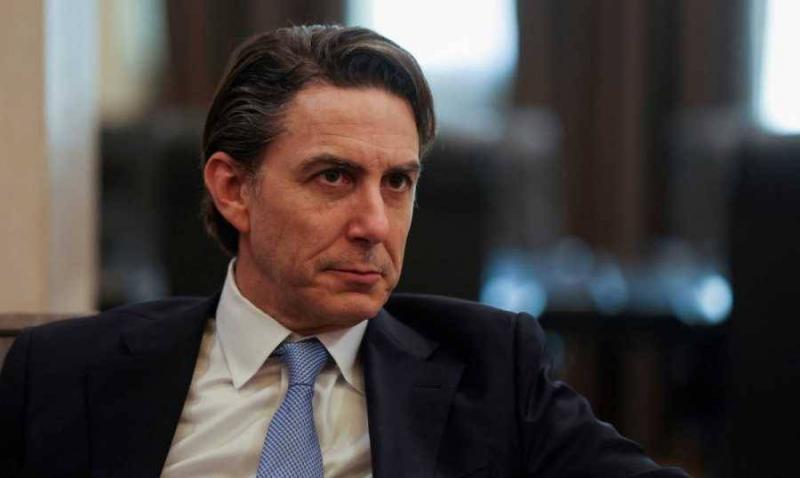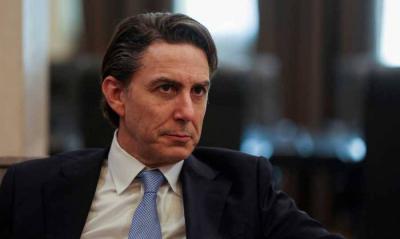One cannot rely on U.S. and French efforts to defuse the situation along the southern Lebanon front by preventing Israel from igniting it on a large scale, unless, as stated by a Lebanese political source, these efforts are accompanied by preparations to implement Resolution 1701, which is the only framework for delineating the land borders between Lebanon and Israel. This forms the agenda of U.S. Energy Advisor Amos Hochstein, who links the restart of his diplomatic engines between Beirut and Tel Aviv to their agreement on ideas he has proposed for immediate implementation to prevent the widening of the war.
Lebanese promotion of the return of the U.S. mediator to Beirut comes in light of hopes pinned on him to halt the increasing confrontations between Hezbollah and Israel, which threaten to expand the war to include southern Lebanon, even if a ceasefire is reached on the Gaza front. According to a political source speaking to "The Middle East," the return of the U.S. mediator is not on the table at least in the foreseeable future and depends on what Speaker of Parliament Nabih Berri is able to achieve in his communication with Hezbollah's leadership, which he has been tasked with negotiating with, a situation that also applies to caretaker Prime Minister Najib Mikati.
The same source revealed that the U.S. mediator presented Speaker Berri with a set of ideas that could form, from his perspective, the political and security framework for implementing Resolution 1701. He also presented them to the Israeli government, which requested time to respond until it is certain of Hezbollah's willingness to engage with these ideas, but on the basis of not linking the implementation to a ceasefire in Gaza.
The source confirmed that Speaker Berri expressed reservations about several points raised by the U.S. mediator, adding that the latter showed understanding of his perspective and expressed readiness to reconsider some points because, ultimately, what matters to him is to prepare a comprehensive American paper that serves as a foundation for intensifying his meetings aimed at convincing the relevant parties to implement Resolution 1701 and the necessity of moving forward in it to restore calm to southern Lebanon, especially since the confrontation between Hezbollah and Israel has exceeded rules of engagement and is now threatening an expansion of the war, at least from Israel’s side.
The source pointed out that there is difficulty relying on the French paper to restore calm to the southern front, stating that it has been replaced by the ideas put forth by Hochstein, which he is trying to promote, under the pretext that the French paper was proposed with the aim of reaching security arrangements between Lebanon and Israel, implying that it undermines the implementation of Resolution 1701, which outlined a comprehensive mechanism for its application under the supervision of international peacekeeping forces (UNIFIL).
The source believes that the French paper, with its implications, suggests a reconsideration of Resolution 1701, potentially leading to its amendment on behalf of the Security Council. He noted that communication between Speaker Berri and Hezbollah leadership has not ceased, but it remains confined to the technical aspects of the ideas proposed by the U.S. mediator, without yet progressing to the political aspect of the negotiations.
The source questioned whether Hezbollah is willing to refrain from linking a calming of the southern front with a ceasefire in Gaza, which is currently oscillating between a cold and hot flare-up, while European and American fears regarding Israeli Prime Minister Benjamin Netanyahu's insistence on invading the city of Rafah are increasing, intersecting with warnings about his resorting to expanding the war southward.
Therefore, Hezbollah is taking its time in finalizing its position regarding the U.S. ideas, despite the ongoing international rush to Lebanon, which focuses on advising against escalating the war and avoiding providing excuses for Israel, which seeks to circumvent pressures urging it to exercise restraint, believing that there is a security necessity to strike and dismantle Hezbollah's military infrastructure, so it does not one day consider invading the Upper Galilee, similar to Hamas's incursion into Israeli settlements located near Gaza.
Thus, the return of the U.S. mediator to Beirut is not on the agenda unless he decides, in the event of a Middle Eastern tour, to make a stop in Beirut perhaps as a formality, as the political source suggests, because the key to invigorating communications for the implementation of Resolution 1701 remains in Hezbollah's hands, which seems in no rush, as long as it insists on linking the volatile situation in the south with the ongoing war in Gaza and requires its cessation to discuss ideas conducive to its implementation without any amendments, according to "The Middle East."




